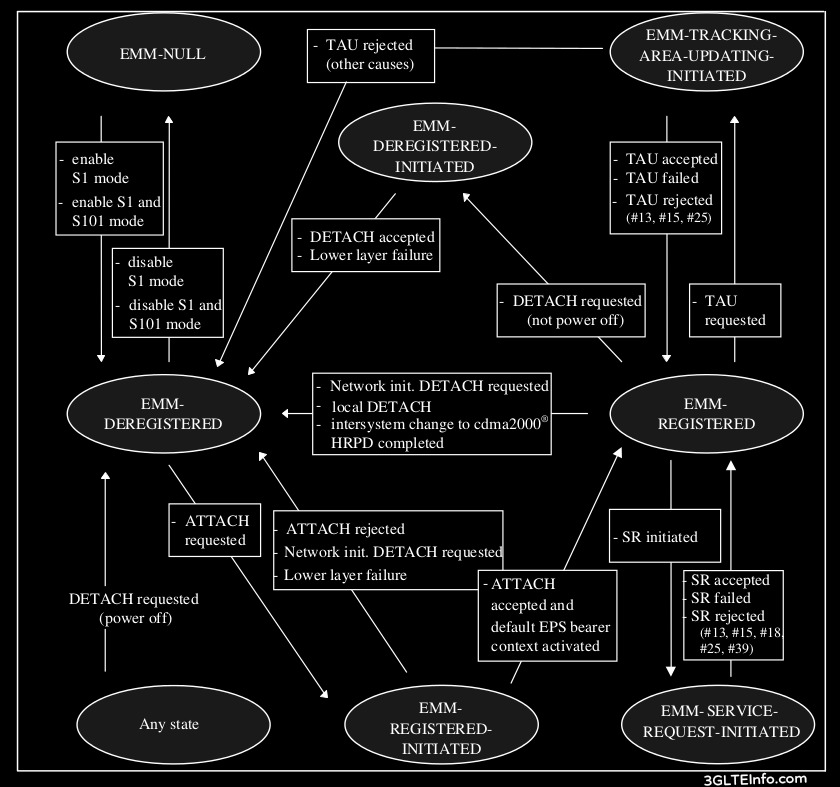EMM sublayer in NAS layer has the main functionality of providing mobility service to User Equipment, that means to provide a mechanism to keep track of UEs whereabouts in a network.
Along with providing mobility service, EMM also provides connection management services to SM sublayer (Session Management) and SMS entity in CM (Connection Management) sublayer.
EMM entity in the UE can be in one of the following states.
EMM-NULL
In EMM-NULL state EPS service is not available and no mobility management function need to be performed.
EMM-DEREGESTERED
In EMM-DEREGESTERED state UE is not correctly registered to network. So UE location is not known to the network till now. UE needs to initiate attach or combined attach procedure to establish an EMM context.
EMM-REGISTERED-INITIATED
When UE starts attach or combined attached procedure, it moves to a new state called EMM-REGISTERED-INITIATED. In this state UE waits for response from the network.
EMM-REGISTERED
After receiving attach or combined attach success response from network UE move to EMM-REGISTERED state. Here a default EPS bearer is already activated for the UE. In EMM-REGISTERED state UE position is known to the MME with an accuracy of serving eNodeB.
In this state UE can start normal services like sending and receiving user data and reply to paging.
EMM-DEREGESTERED-INITIATED
UE enters EMM-DEREGESTERED-INITIATED state after it has requested release of the EMM context sending detach request message to network and waiting for response from MME.
EMM-TRACKING-AREA-UPDATING-INITIATED
A UE enters the state EMM-TRACKING-AREA-UPDATING-INITIATED after it has started the tracking area updating or combined tracking area updating procedure and is waiting for a response from the MME.
EMM-SERVICE-REQUEST-INITIATED
A UE enters the state EMM-SERVICE-REQUEST-INITIATED after it has started the service request procedure and is waiting for a response from the MME.


Permalink
what is s101 mode